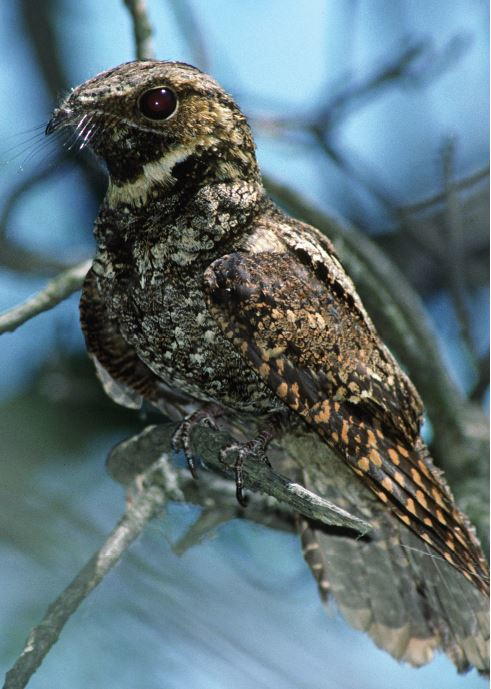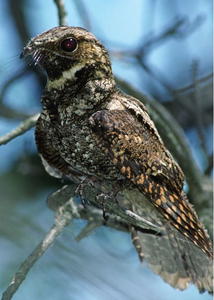Now You See It, Now You Don't
The whip-poor-will intends to be heard and not seen.

The bird’s coloring does give it a remarkable ability to blend into its environment, but it also offers some very challenging work for the wildfowl carver.
My brother hated whip-poor-wills. It was not an abnormal lifelong dislike of beauty and nature. In fact, hate may be a little too strong a word because, like many of us, he heralded the first annual song of the eastern whip-poor-will (Caprimulgus vociferus) as one of the defining moments of each year. Like the first call of the spring peepers or the sight of the first robin, the song of the whip-poor-will signals the approach of lazy, verdant summer days. My brother’s dislike of the song originated during his early days in the army when he was assigned to nighttime guard duty at a remote base. The first hours on watch seemed to stretch for weeks in the nighttime quiet. He was lulled by the silence, until a loud, whistled “whip-poor-will” jolted him from his stupor. Once was bad enough, but my brother told me the bird would startle him night after night.
Of course, scaring people is not a malevolent act on the part of the whip-poor-will. This bird was only doing what whip-poor-wills do in the springtime—patrolling a territory, settling with absolute silence, and then loudly singing to signal possession. Other than a little “chuck” sound just before the whip-poor-will song, the bird has no warm up. It’s all or nothing at all. The bird never cared that a human was trying not to jump out of his skin just a few feet away. Whip-poor-wills are mysterious forest dwellers that belong to the goatsucker family. The goatsuckers, in general, are strange and unusual birds. The family includes two familiar groups in North America; the nighthawks (common, Antillean, and lesser) and the nightjars, which includes not only the eastern whip-poor-will, but the western whip-poor-will, chuck-will’s widow, common pauraque, and common poorwill. Goatsuckers were originally grouped together in the belief that their extraordinarily wide mouths allowed them to suckle milk from goats. Today, of course, we know that their mouths are traps evolved to scoop insects out of the air, much like a child’s bug net.
Whip-poor-wills have a small bill, but an open mouth gape of 36 to 37 mm that they use to capture and swallow moths, beetles, grasshoppers, and other insects up to 50 mm long (the whip-poor-will’s body length is approximately 250 mm). Rictal bristles around the mouth opening act as brooms to gather outliers into the maw.
This article is from the Summer 2012 issue. For more information on our issues, check out our issues page.
Read NextFlycatcher Kings



